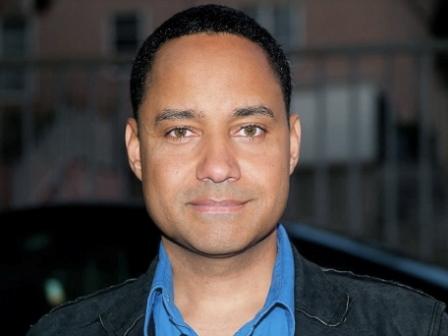 Several years ago horror fans started to complain that good horror films weren’t being made anymore. They also argued that the ones that were being released were pretty horrible and unoriginal. Jeffrey reddick came to the rescue and gave the fans Final Destination, which was an instant hit. It was original, fun, and just an awesome movie in general that has spawned a number of sequels that keep moviegoers coming back for more. Jeffrey is a scary talented guy who just “gets it” when it comes to horror. In my opinion the guy can do no wrong and I am always eager to check out his latest projects as soon as they are available. He is a genius in my opinion and I think that he is right up there with horror legends such as Carpenter, Argento, and many others. In short he is just an all around great guy and it was my pleasure to get to speak with him recently (plus I think that it is pretty cool that he is from Kentucky, which is my home state as well).
Several years ago horror fans started to complain that good horror films weren’t being made anymore. They also argued that the ones that were being released were pretty horrible and unoriginal. Jeffrey reddick came to the rescue and gave the fans Final Destination, which was an instant hit. It was original, fun, and just an awesome movie in general that has spawned a number of sequels that keep moviegoers coming back for more. Jeffrey is a scary talented guy who just “gets it” when it comes to horror. In my opinion the guy can do no wrong and I am always eager to check out his latest projects as soon as they are available. He is a genius in my opinion and I think that he is right up there with horror legends such as Carpenter, Argento, and many others. In short he is just an all around great guy and it was my pleasure to get to speak with him recently (plus I think that it is pretty cool that he is from Kentucky, which is my home state as well).
Todd Martin: When you were growing up what were some of your favorite horror movies and television shows?
Jeffrey reddick: I was a voracious TV and horror movie watcher growing up. My favorite movie is the original Nightmare on Elm Street. My favorite TV show…and I’m cheating here, but it’s the “V” mini-series. I watched all the familiar horror films that genre fans know such as Texas Chainsaw Massacre, Halloween, and The Evil Dead. On TV I loved everything from “Falcon Crest” and “Remington Steele” to “The Golden Girls” and “Fantasy Island.”
TM: When did you actually start writing, and what was the first piece that you remember writing?
JR: The first piece I remember writing was a short story when I was about 12. I saw the original Nightmare on Elm Street when I was 14 and wrote an 8 page idea for a prequel. So, I started writing young, but my original dream was to be an actor. So, while I’ve been writing most of my life, my early focus was on acting.
TM: Can you tell us a little bit about how you first contacted New Line Cinema when you were younger and give us some details about your interactions with Robert Shaye at that time?
JR: Well it was after watching A Nightmare on Elm Street. The movie blew me away. I went home and banged out a treatment for a prequel. I was a crafty little hillbilly (I grew up in Eastern Kentucky). I saw the name of the production company, called information and got the number for New Line Cinema in New York. I called and found out the President’s name, Robert Shaye. I sent him my treatment. .. and got a standard rejection letter, because the treatment was unsolicited.
So, I sent a surly response. I explained that I had watched 3 New Line movies and spent $5 on his stuff, so the least he could do was read my treatment. Thankfully, he read the treatment and wrote me back. Bob said I had a fertile imagination, but told me I needed to work on story structure. For me, this was all the encouragement I needed. While I didn’t know anything about the business, I started reading scripts, which were sent to me by Joy Mann, Robert’s assistant. I stayed in touch with Joy over the next several years. When I was a sophomore in college, I went to New York for a summer acting program and she got an internship at New Line.
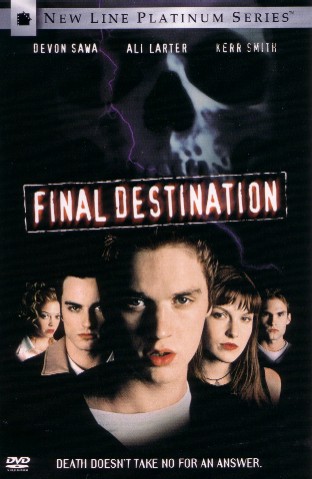 TM: Without a doubt the Final Destination movies are brilliant. How did you come up with the idea for such an awesome concept?
TM: Without a doubt the Final Destination movies are brilliant. How did you come up with the idea for such an awesome concept?
JR: Inspiration hit while I was sitting on an airplane. I read an article about a woman who was supposed to take a flight home from a vacation. She got a call from her mother telling her not to take the flight because her mom had a bad feeling. The woman changed her flight and the plane crashed. That freaked me out, since I was on a plane. So that got me thinking…”Wow…what if she was meant to die in that crash?” So that’s where the overall concept came from.
Like every writer at the time, I was told that if I wanted to land an agent, I had to write a sample script for something on TV. I loved “The X-files” and decided to do an “X-files” episode where Scully’s brother had the premonition. The script got me an agent, but we never submitted it to the show because a buddy of mine at New Line (thank you Mark Kaufman) convinced me the concept would be great for a feature. So I went that route.
TM: Of all the films that you have written which one is your favorite and why?
JR: This answer is going to sound like a cop-out, but I’ve grown to appreciate all of the films I’ve written. Some got watered down, dumbed down or rewritten during the production process. But, at the end of the day, I have to remind myself how incredibly blessed I am to have had a movie made at all. And to have my first produced become a franchise is a really an honor. So, I feel guilty about bitching. Even if it’s about the zombie crawling across the ceiling in Day of the Dead ?
TM: Who would you say were your biggest influences when it came to filmmaking?
JR: Wes Craven is at the very top of my list. I love his work and the subtext that he adds to everything. He writes films that try to say something, as opposed to just killing people. Novels from Stephen King and Clive Barker had a huge influence on me. I also love Hitchcock, Carpenter, Dario Argento, Kevin Williamson, James Cameron and Brian DePalma.
TM: What are your feelings about the state of the horror film genre as of today? Do you think that it is as strong as ever or that it is lacking in recent years?
JR: I think the genre itself is “going strong” on a financial level. It always does, because we’re a very loyal audience. Creatively, I think we’re in a slump. And it’s not because of the writers, it’s because the studios want to play it safe with sequels and remakes that the good, original material isn’t getting made. I have a lot of screenwriter friends who have written terrific scripts. But instead of making their movie, they’ll offer them a remake gig. And found footage movies have to go. There are some good ones. But there’s a lot of bad ones. The only reason the market is flooded with them is the studios know they can make them uber-cheap…so there’s little to no financial risk. You used to have fearless writers, directors and studios trying to make original, and scary, movies. (I sound like I’m an old man when I say that.) But it’s true. That creative, maverick spirit was alive and well when I started working at New Line Cinema. But now many decisions are made by test audiences and market research, instead of creative people. But it’s not all doom and gloom. With the technology we have now, you can shoot an amazing film for very little money. This forces you to think about characters and story, since you can’t gloss over things with lavish special FX. But it almost seems like you have to do a project for $1.5 or below – or $30. The middle class of movies has shrunk. But hopefully, as more original films make money, things will change.
TM: What is your favorite movie of all time and why?
JR: A Nightmare on Elm Street. Not only was it incredibly original, terrifying and brilliantly filmed, but the character of Nancy was the first horror heroine I saw who was pro-active and didn’t run around screaming waiting for a man to help her. She aggressively went after Freddy Krueger. Booby-trapped the house…went in to the nightmare world, grabbed Freddy and kicked his ass. But aside from the fan boy love, this movie was instrumental in getting me my job at New Line, which produced Final Destination.
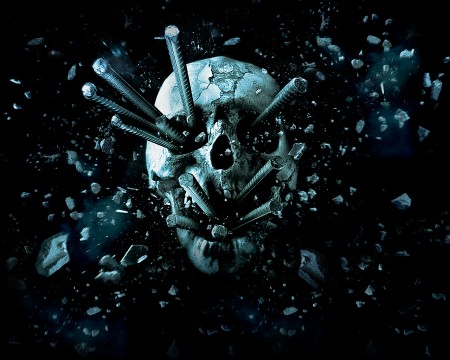 TM: What do you think is the scariest movie ever made? Are there any horror movies that you have seen that really scared you?
TM: What do you think is the scariest movie ever made? Are there any horror movies that you have seen that really scared you?
JR: The movies that terrified me the most were the ones I saw when I was young. So, Nightmare on Elm Street scared me the most. Then The Evil Dead, and Texas Chainsaw Massacre. Salem’s Lot scared me to death as a kid, as did Children Shouldn’t Play With Dead Things (Today, not so much). As for the current crop Alien and Carpenter’s The Thing were scary. Scream was amazing. I loved The Crazies and the remake of Last House on The Left. Mute Witness and Candyman are also favorites of mine. I don’t get really scared at most horror films. But the cheap scares, where they blast music usually make me jump.
TM: What would be your dream project in terms of filmmaking, and who would you like to work with on this project?
JR: My dream projects are the last two scripts I’ve written. They’re both high-concept, original horror films. They deal with adult characters and themes. And I really feel that if they’re done right they’ll be something that genre fans will love. As for dream collaborations, Wes Craven…big surprise.
TM: What do you like to do in your spare time? What music are you into, what hobbies and interests do you have, etc?
JR: I don’t have much free time. I spend the majority of it writing. But I love comic books, so I make my weekly trek to Golden Apple on Wednesday. And people know that is the day, I’m gonna chill and read my comics. I also watch a lot of movies and television. That’s why I won’t get a playstation. If I did that, I’d never leave my apartment. As for music, I love everything from Country to Pop. I just like good music, no matter the genre.
TM: Which Final Destination film is your favorite, and do you have any plans to write any future installments of the series?
JR: While I’m proud of the concept, and the whole idea that Death has a design in the first movie, I have to say the second one is my favorite. I got the idea for the log truck sequence after driving behind one in Kentucky and I think it’s one of the best openings ever. (Except for the opening of Scream). I only worked on the story, but my goal was to bring back some characters from the original, and discover that the characters in the sequel were suffering because the characters in the first film cheated death. I think the screenwriters, Eric Bress and J Mackye Gruber did a wonderful job creating a fun and scary script and David Ellis did a great job directing it.
As for coming back for a sequel, I have ideas on re-booting the franchise and taking it a different direction. But in Hollywood, the rule is “If it ain’t broke, don’t fix it.” And so far, the movies have stuck close to the formula. So, I’d love to do another one if we were going for something different and not just telling the same story.
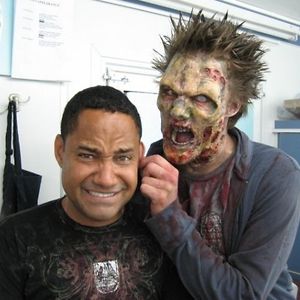 TM: If you were able to write the script for any remake of any horror film you wanted what would it be and why?
TM: If you were able to write the script for any remake of any horror film you wanted what would it be and why?
JR: I bemoan the fact that every sequel and remake that gets made means an original script didn’t (and I did a remake myself). But the one movie I’ve always wanted to remake is One Dark Night. I think the set up and concept are really cool, and the last 15 minutes are terrifying. However, since most of the movie involves kids playing pranks on a drugged up Meg Tilly I think that it has a lot of unexplored potential.
TM: Do you have any projects you are currently working on that you would like to talk about?
JR: I have two supernatural horror films (my dream projects) that are getting some traction. And I just finished up a pilot I’m excited about. If they get going, I’ll you know. :)
TM: What advice would you give any aspiring screenwriter hoping to break into the business?
JR: I can only speak to my experiences. There’s no magic bullet for breaking in to the business. I credit my success with hard work and a lot of luck. My first bit of advice is to be open to constructive criticism. It’s the only way we grow and improve. Find a small, core group of people, whose opinions you value, to read your work. Everyone who reads your scripts will have differing opinions. You have to learn to sift through these notes and figure out which ones work. Don’t compromise, but don’t be so precious with your script that you don’t want to change anything.
Also, keep writing. Try to avoid the trap of starting something and not finishing it. Writers are master procrastinators. We’ll write 30 pages of something we think is great. Then we’ll get sidetracked with another “brilliant” idea and start on that…and realize we’ve never actually finished a script. The first draft is the hardest one to finish.
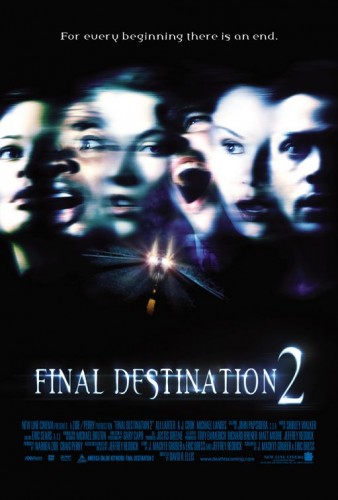 If possible, try to get your scripts done independently. There are so many small companies, and producers, out there who are looking for good material. The independent route is the best chance you’ll have of seeing your script truly realized on film. Getting a short, or low budget feature made is the most surefire way to get noticed. Getting a script read by a studio is nigh impossible without an agent. And even then, you’re competing against the best of the best. I tell people that a writer’s goal should be getting your film made…not getting a film made by a studio. They’re great when they happen, but there’s also a lot of chefs in the kitchen second guessing everything and again, with the studios only releasing a certain number of films each year…with a lot of them being sequels and remakes…the chance of an unknown writer getting a studio film is almost impossible.
If possible, try to get your scripts done independently. There are so many small companies, and producers, out there who are looking for good material. The independent route is the best chance you’ll have of seeing your script truly realized on film. Getting a short, or low budget feature made is the most surefire way to get noticed. Getting a script read by a studio is nigh impossible without an agent. And even then, you’re competing against the best of the best. I tell people that a writer’s goal should be getting your film made…not getting a film made by a studio. They’re great when they happen, but there’s also a lot of chefs in the kitchen second guessing everything and again, with the studios only releasing a certain number of films each year…with a lot of them being sequels and remakes…the chance of an unknown writer getting a studio film is almost impossible.
And the idea that you’ll write a movie and suddenly be rich is a fallacy. So, be prepared to be in it for the long haul. A few things…you can try to get an internship at a studio, or production company. I had a friend who wrote a good script that got passed on all over town. She sat down and wrote it as a book and has some top agencies interested. The big thing now, in Hollywood, is having a script based off of something…a book, TV show or video game. So, if you’re friends with someone who’s written a book you love, talk to them about optioning it and then write the script. The last bit of advice is to steel yourself for the “business” side of things. Most creative people get into this field because they have stories they want to tell. So it’s a constant battle to find a middle ground between art and commerce. Decisions will be made that have nothing to do with the quality of your work. Changes will happen, no matter how personal, or important, certain scenes or characters are to you as the writer. You have to develop a thick skin on the business side.
TM: Is there anything you would like to add or anyone you would like to give a shout out to?
JR: First of all, thanks for the interview. I’d just like to say I really appreciate the support I’ve received from horror fans over the years. It really keeps me going. And I’m excited about bringing you all some new projects that will hopefully surprise and scare you.
Thanks to Jeffrey Reddick for allowing me to interview him!
Interview: Jeffrey Reddick (Writer – Final Destination franchise)
 Horror News | HNN Official Site | Horror Movies,Trailers, Reviews
Horror News | HNN Official Site | Horror Movies,Trailers, Reviews
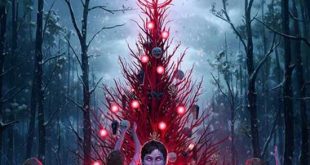
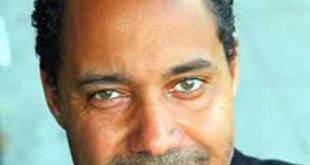

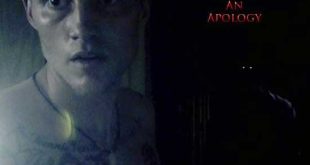
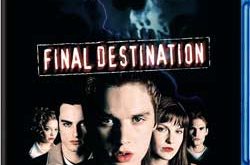
![killing-zombie[1] Piano Death - zombieland](https://horrornews.net/wp-content/uploads/2011/08/killing-zombie1-310x165.jpg)